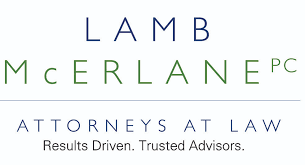Life After Covid-19 – Part II

 By James C. Sargent
By James C. Sargent
There is a national debate ongoing as to whether and to what extent government can limit the liability of businesses that choose to open amid the conflicting signals from the federal, state and local governments, health department officials, and epidemiologists.
What is clear: everyone wants to return to life as normal. What is unclear: the extent to which Covid-19 will be with us for the foreseeable future. None of us wants to replay the nation’s experience in 1918 with the Spanish flu, when disregard for prudent advice, and premature restart of random contacts among the general population resulted in a flare up of the pandemic after it appeared to have been subsiding.
Some in political office have suggested that the federal government should legislate immunity for businesses that reopen quickly (the magic date is up for debate, but in some states it already has past). The argument is that the federal government has the power to do so under the Commerce Clause in Article I, Section 8 of the United States Constitution.
But that is up for debate, because the common law remedy for tortious conduct (conduct that violates societies norms or standard) historically has resided with the states under the Tenth Amendment. Any such legislation surely will be challenged. So, too, would any attempt to legislate a “safe harbor” for those businesses that open with an accepted group of protocols and safeguards in place, as it is likely that such legislation also would be challenged on constitutional grounds.
Thus, there is not yet, and may never be, prescribed guidelines because, even in the scientific community, the understanding of Covid-19 is constantly changing.
In the absence of definitive guidelines, each business that opens must establish its own common sense safeguards, adapted to the idiosyncratic nature of its daily experience with respect to human contact. Businesses with abundant interaction with the general public must adopt heightened protections––such as those one can observe in most markets and big box stores today––such as gloves, masks, and plastic shields between customers and check-out.
The same precautions may be advisable for other retail businesses––from clothing, jewelry and cosmetic, to hardware stores.
Manufacturing and other blue-collar jobs can implement and encourage plans for social distancing, hygiene, and workplace cleanliness. This may require spreading out processes, new protective equipment, stations for antimicrobial hand sanitizers, new shifts, and different schedules and practices for locker rooms, lunch breaks, meetings and other social interactions.
Businesses that can remain isolated, for example, professional or business offices, should require similar procedures when outsiders are introduced. The Prime Minister of New Zealand, Jacinda Ardern, has talked about the “bubble” of people one interacts with most frequently, with whom one can establish a common understanding as to hygiene and health practices, versus people from outside the bubble, each of whom must be treated as unknown, and carrying an unknown risk of exposure.
The concept does not preclude human interaction but suggests that caution and appropriate safeguards should be utilized when they occur. Where possible, businesses should continue to encourage remote work, and rotating staff, to minimize the number of people in the office at any one time.
The key to our successful re-emergence from Covid-19 lies in a prudent, reasoned approach to reopening business. Proper safety precautions should not interfere with the rebound. If you would like advice on office/business procedures, please contact us at 610.430.8000 or www.lambmcerlane.com.
Click here to read Life After Covid-19 – Part I.
________________________________________________________________________________________________
 ABOUT THE AUTHOR
ABOUT THE AUTHOR
James “Jim” C. Sargent is a Partner and Co-Chairman of Lamb McErlane’s Appellate Advocacy Group and Litigation Department. Jim represents small businesses, as well as major national and multinational manufacturers in litigation and appeals. His practice includes employment contracts, restrictive covenants, commercial contracts, real estate and banking law and construction litigation. Jim also offers mediation services in commercial/construction/business ownership and appellate disputes. jsargent@lambmcerlane.com. 610-701-4417.
________________________________________________________________________________________________
Connect With Your Community
Subscribe to stay informed!
"*" indicates required fields











![95000-1023_ACJ_BannerAd[1]](https://vista.today/wp-content/uploads/2023/03/95000-1023_ACJ_BannerAd1.jpg)


































